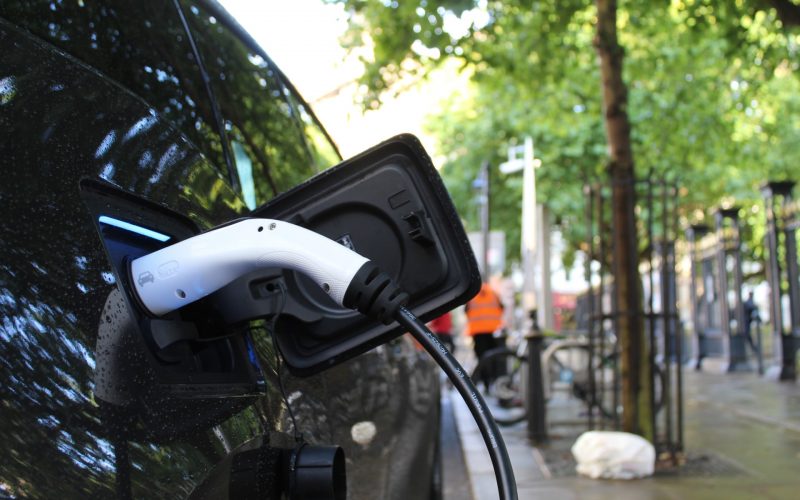With uncertainty over the future of taxation on ICE (internal combustion engine) vehicles and a lack of clarity around where Ultra Low Emission Zones (ULEZ) will be, new car buyers have been particularly sceptical in regard to purchasing new petrol or diesel alternatives.
Overall, 2019 was a rather poor year for new car sales in the UK. Diesel cars in particular felt the pinch, suffering a 2.3 per cent decline in total new sales. This figure, obviously a damaging blow, was, for car manufacturers, somewhat softened by the incredible gains made by the electric counterparts.
2019 saw sales of electric vehicles rise by 144 per cent. Why? Because motorists want fuel efficient, high performance, low emission vehicles, and in the modern world we live in, thanks to stark developments automotive engineering, EVs offer exactly that.
Way back in the early noughties and twenty-tens as they are affectionately known, electric vehicles had negative connotations. Poor mileage, expensive, and in most parts lacking in what Thierry Henry once described as “va va voom”.
The reputation was hardly unfair. If you went to buy an electric car, often these three attributes were true, and you were hardly spoilt for choice when it came to options either. The Prius changed the game admittedly, but even when it came to prominence, we were still left wanting more.
As the world as whole began to develop a stronger environmental conscience, one by one, the big brands began to jump in: Jaguar, Porsche, Renault, Audi, Hyundai, and Nissan, to name just a few. The latter of the bunch, Nissan, with their innovative model Nissan Leaf, developed exactly what the average car manufacturer desired — a plug-in vehicle that had a mileage range of more than 200 miles, was powerful, and, perhaps most importantly, was affordable.
In this article, Grange take a look at the growth of electric vehicles here in the UK, why they are the way forward, and the various alternatives on offer to ensure you can maintain your love for everything motoring without the companionship of an internal combustion engine.
Money saving
Petrol and diesel prices are rising. It would be foolish to think that the currently depleted prices caused by Covid-19 will last beyond the end of 2020, and once the oil market returns to some form of normality, we should expect to see fuel prices return to the prices they were displaying in the early months of the year.
When you buy an electric vehicle, you will have a free charging point installed at your property. Charging your vehicle at home will cost approximately 12p per kWh while charging it at a parking space will cost around 35p per kWh. After totting this up, you will recognise that a full charge costs no more than a few pounds, as opposed to £50 or £60 for a full tank of petrol or diesel.
Furthermore, the British Government are now offering £3,500 grants, in order to encourage people to make the switch from high emission vehicles to electric or hybrid alternatives, as they strive to meet their ambitious net zero targets in terms of emissions and air quality by 2050.
Range anxiety
Defined by the Washington Post as the “state of fear drivers experience from knowing that their battery could run out of charge and strand them far from a recharging station”, range anxiety is hardly unfounded.
However, according to a study by MIT, this is very much a thing of the past. Firstly, the study points to the fact that a vehicle with a range of only 80 miles will sufficiently appease between 84 and 93 per cent of daily trips of citizens living in a developed country.
There are various different types of chargers for electric vehicle. In terms of weaker alternatives, level 1 and level 2 produce similar power to what you would usually find in a computer or a washing machine. These are the chargers commonly found in residential housing and parking spaces, providing a basic level of power, appropriate for short journeys. Meanwhile, level 3, found at charging stations, such as BMW i3’s SAE Combo, transfer 80 to 145km in 20 minutes, helping quash this aforementioned ‘range anxiety’ for the everyday motorist embarking on longer treks.
The level 4 chargers, exclusive to Tesla’s superchargers, power an astounding 270km in 30 minutes. It is predicted that within the next five years, level 4 will be readily available.
Quality options
For years, the appeal of the electric market was diminished by the sheer lack of options. There simply weren’t enough alternatives. In 2020, however, there is an electric vehicle which appeases almost every need and driving style. Auto Express detailed some of their best electric vehicles currently available on the market.
On their list featured the Kia e-Niro, the BMW i3, and the Jaguar I-Pace. The Korean Kia stands out thanks to its impressive range and affordable price, the BMW due to its “tiny running costs”, and the Jaguar earns its place through what has been described as a “premium EV pack”.
It should come as no surprise that the ongoing impacts of Covid-19 will have a drastic impact on the sale of all new cars. Coming out the other side, however, electric vehicles should be able to demonstrate their ability. Some would say it is there time to shine!
Sources
https://medium.com/@henriquemsfialho/range-is-no-longer-a-problem-for-electric-vehicles-faa0adabfbbe
https://www.autoexpress.co.uk/mercedes/eqc/86187/mercedes-eqc-best-electric-cars
https://www.statista.com/topics/2298/the-uk-electric-vehicle-industry/
https://www.alliedmarketresearch.com/electric-vehicle-market
https://www.grange.co.uk/dealerships/jaguar-barnet
https://www.independent.co.uk/news/uk/electric-car-sales-sales-diesel-brexit-business-a9271041.html









